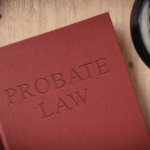
In the journey of life, we often find ourselves navigating through different stages, each presenting its own set of challenges and opportunities. As we grow older, it’s essential to recognize the importance of proactive planning, particularly in the realms of elder law and estate planning. In this article, we’ll delve into the symbiotic relationship between these two crucial aspects and explore why waiting until the last moment might not be the wisest approach.
1. The Intersection of Elder Law and Estate Planning
Elder law encompasses legal considerations that specifically impact seniors. From matters like long-term care and Medicaid planning to guardianship and end-of-life decisions, elder law covers a spectrum of issues that become increasingly relevant as we age. What’s intriguing is the way elder law and estate planning intertwine. Estate planning isn’t just about distributing assets; it’s about preparing for the unique challenges that come with aging.
2. The Mistake of Waiting Until It’s Too Late
Picture this: a health crisis strikes unexpectedly, and suddenly, the future is uncertain. Unfortunately, this scenario isn’t uncommon. Many individuals delay estate planning until they’re faced with illness or old age, assuming they have ample time to address these matters. However, the truth is that waiting can lead to undesirable consequences – not just for you, but also for your loved ones.
3. Benefits of Early Planning
Starting the elder law and estate planning process early offers numerous advantages. It ensures your desires regarding medical decisions, financial matters, and end-of-life care are respected. By protecting assets, minimizing tax liabilities, and facilitating a seamless transfer of wealth, early planning safeguards your family’s financial future. Moreover, proactive planning empowers you to make informed choices about long-term care options, offering peace of mind for both you and your family.
4. Key Elements of a Comprehensive Elder Law and Estate Plan
A well-rounded plan involves several essential components:
- Wills and Trusts: Crafting legally binding documents to outline asset distribution and safeguard your legacy.
- Advance Healthcare Directives and Power of Attorney: Designating trusted individuals to make medical and financial decisions if you’re unable to do so.
- Medicaid and Long-Term Care Planning: Addressing potential long-term care needs while considering Medicaid eligibility.
- Guardianship Designations: Preparing for the possibility of needing a guardian in the future.
- Beneficiary Designations: Ensuring your assets are distributed according to your wishes.
5. Overcoming Common Hurdles
Procrastination often stems from misconceptions about complexity, loss of control, or costs. However, early planning can actually empower you and your family, providing clarity and minimizing potential complications. Engaging professional guidance can simplify the process and address these concerns effectively.
6. Finding the Right Legal Support
Selecting an experienced elder law attorney is pivotal. A qualified attorney understands the nuances of elder law and can tailor a plan to your unique needs. Look for professionals who possess a deep understanding of the challenges seniors face and a history of successful outcomes.
7. Taking Action Now
In the journey of life, time is a non-renewable resource. Don’t wait until circumstances force your hand; embrace proactive planning today. By prioritizing elder law and estate planning, you’re investing in a more secure and empowered future for both you and your loved ones.
Conclusion
Remember, embracing elder law and estate planning isn’t about dwelling on the unknown; it’s about securing your legacy and safeguarding the people who matter most. The time to act is now – the decisions you make today will shape the quality of life for you and your family tomorrow. By understanding the intersection of elder law and estate planning and taking proactive steps, you’re setting the foundation for a future that’s well-prepared and well-protected.
Want to get started on Elder Law and Estate Planning? Contact us here for a free consultation.







